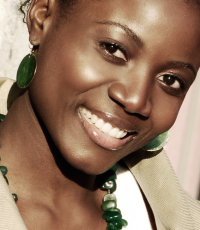One of the activities I undertake in addition to my academic studies is teaching. The experience is rewarding in the sense that I get the opportunity to impact the lives of young Ghanaians who will eventually develop and/or run the country. I recently had a chat with one of my students, Latifa, who has repeated her class and feels lost, alone, abandoned and rejected. Here’s how our conversation unraveled:
“Latifa, if we were to envision you in the near future as a successful person, what would we see?” I asked. My question seemed to surprise her because she expected something similar to what she was used hearing: insults for failing her exams.
She quietly looked at me and replied, “I want to start my own business.”
“How long have you had this desire?” I asked
“Since childhood,” she replied.
I continued to ask her to share how she would embark on achieving this desire, and she answered: “I have been thinking of how to raise money first.”
At this stage in her life, I understood why she used the word “thinking”. I asked when she mostly did her thinking and she responded that it usually happened while walking home or in class.
Lack of understanding of education often leads to an isolation of individuals possessing critical thinking abilities from national development. You must fall in line or else you are quickly removed from it. My observation is that creative, talented students tend to experience difficulty in the Ghanaian educational system. Has anyone asked themselves why so many people graduate from the university and are confused about career paths to pursue only to resort to a dependence on government jobs and sometimes join the corruption team?
Latifa is just one of millions of Ghanaians who have been targeted by the nation’s substandard education system. The time has come for people to understand the true meaning of education. We cannot have ‘educated’ people and still be classified as a developing people or middle income society. We cannot have ‘educated’ people and still have mismanaged resources. We cannot have ‘educated’ people who “think” of solutions that produce more problems.
Latifa now understands why she is refusing this system of education. She now looks into the future with hope and determination. Eventually, she will understand that her future and success is not dependent on a system that breeds less critical thinking people.

